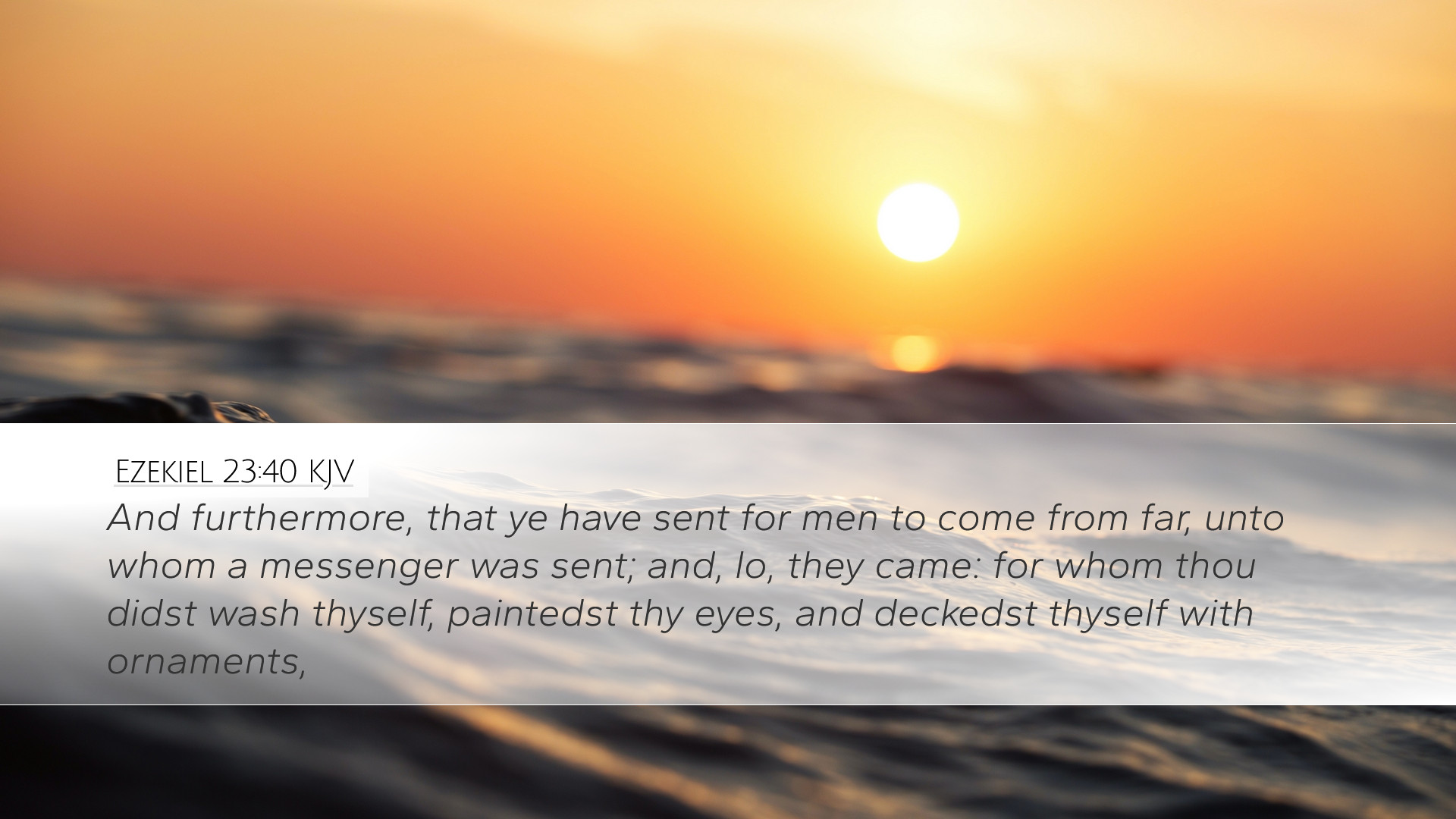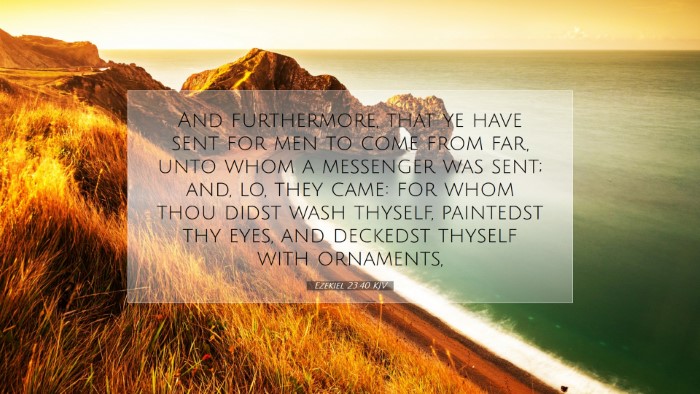Ezekiel 23:40 Commentary
Ezekiel 23:40 reads: "And furthermore, that you have sent for men to come from afar, to whom a messenger was sent; and lo, they came: for whom you did wash yourself, painted your eyes, and decked yourself with ornaments." This verse is part of a vivid allegorical narrative in which God, through the prophet Ezekiel, addresses the unfaithfulness of Israel and Judah, depicted as two sisters, Oholah and Oholibah.
Context of the Passage
The larger context of Ezekiel 23 depicts a graphic portrayal of the spiritual adultery of Israel. In this chapter, the two sisters represent Samaria (Oholah) and Jerusalem (Oholibah), illustrating their infidelity to God through alliances with foreign nations and idolatrous practices.
Thematic Analysis
- Spiritual Adultery: Ezekiel uses the metaphor of marital unfaithfulness to depict the relationship between God and Israel. The act of sending for men from afar symbolizes the solicitation of foreign nations for alliances rather than trusting in God.
- Preparation and Deception: The imagery of washing, painting, and decking oneself highlights the lengths to which these nations went to appear attractive and desirable to their foreign lovers, reflecting the deceptive nature of their choices.
Insights from Commentary
Matthew Henry captures the essence of this passage by emphasizing the ingratitude of Israel. He notes that instead of turning to the Lord, who had been their protector and provider, they sought alliances that led to their downfall. Henry elaborates that this represents a broader spiritual truth: the tendency of believers to seek help from the world rather than relying on divine provision.
Albert Barnes focuses on the significance of the "messenger" sent to garner support. He posits that this act signifies a trust in human relationships and strategic planning over faithfulness to God. Barnes stresses that such actions reflect not just a momentary lapse but a continual rejection of God’s authority and provision.
Adam Clarke provides a detailed examination of the cultural practices reflected in the verse. He explains that washing and adorning oneself were common practices of courtesans seeking to attract customers. Clarke draws parallels between these practices and the spiritual compromise made by Israel as they engaged in idolatry, suggesting that they were inviting destruction through their flirtation with foreign powers.
Lessons for Application
This verse offers critical reflections for contemporary believers:
- Faithfulness to God: It serves as a reminder for believers to remain steadfast in their commitment to God, avoiding the allure of worldly alliances that detract from their spiritual health.
- The Dangers of Deception: The emphasis on outward appearance versus inner faithfulness challenges believers to evaluate their own lives for authentic faith as opposed to mere ritualistic practices.
- Dependency on God: Just as Israel was warned about its reliance on foreign powers, believers today must depend solely on God rather than human wisdom or strength.
Conclusion
Ezekiel 23:40 serves as a poignant reminder of the consequences of spiritual unfaithfulness. Through the insights of biblical commentators, we gain a deeper understanding of the metaphorical language used in this passage, allowing it to resonate with our understanding of faith and relationship with God today. Every believer, pastor, and scholar is encouraged to reflect on the lessons of this text, ensuring that their relationships—both divine and earthly—are rooted in truth and fidelity.


